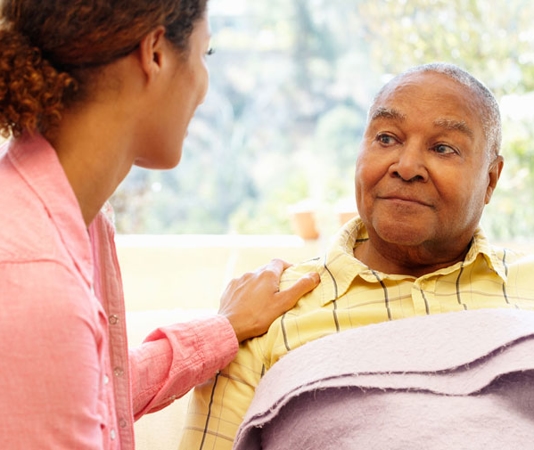Summertime means you and your loved one want to go outside and either work in the garden or the yard. However, this comes with some risks that you need to safeguard against.
The tools you use in the yard have spent the winter in the garage, but your loved ones’ ability to use them may have changed during that time. If they have shaky hands or an altered sense of balance, it can turn those garden tools into dangers. Before you start outdoor work, you should both talk about any new limitations your loved ones may have with everything from the lawnmower to a garden rake. It’s best to have this conversation before they mistake weed killer for fertilizer or injure themselves with a pair of gardening shears. This is especially true if they now need elder home care services due to a chronic illness.
Gardening with your elderly loved ones. Here are some tips to keep in mind before you pull on the gloves and dig in the dirt.
- Help your loved one admit to new limitations. Your loved ones simply need to recognize they can no longer do everything they used to. This will be hard, but if you and your loved ones understand what you can accomplish before you start, it will avoid risks down the road. Accepting new limitations means you might rethink the scale of garden and yard projects.
- Know when your loved one needs to stop. Once you’ve accepted new limitations, you and your loved ones also need to realize when you’re too tired to keep working. To make sure you know when to quit for the day, set an end-time at the start of your work, fully realizing you may not accomplish all you wanted to because it’s more important to be safe.
- Use dangerous tools for them. If you worry about handing your loved one the electric trimmer, give them a different outdoor job. It may make them feel left out, but it’s better than a trip to the hospital.
- Listen. By limiting their activity, it’s easy for your older loved one to feel left out. If they can talk and reminisce, they still feel involved without detrimental stress on their body.
- Stretch before you work. A day in the garden can be just as strenuous as an exercise routine. By incorporating some safe stretching ahead of time, it can help both you and your loved one avoid an unnecessary injury.
- Search for dangers. Look around the garden and the yard for tripping hazards, including roots, holes, uneven ground, or rocks. When you find dangers you can either remove them, or have your loved one to use a cane or walking stick while walking on slopes and banks. If it’s possible, they can avoid those uneven locations altogether.
- Keep your elders off ladders – it’s a major fall risk. Your older loved one does not have the balance and dexterity they used to so it’s best to keep them on the ground. This also means they should not stand on chairs or upside-down barrels or cans.
- Use long-handled tools. By keeping your older loved one from having to get down on their knees, it avoids making conditions like arthritis worse. You can also take advantage of raised planting beds that allow your loved one to sit in a chair while they work. Also, try putting pots of herbs and flowers on the patio table where they are closer.
- Limit sun exposure. An older person is more susceptible to sun burns and dehydration. This means you and your loved one both need to drink lots of water and take breaks in the shade.
- Watch out for mosquitoes. The Centers for Disease Control and Prevention (CDC) saw more than 5,000 cases of West Nile virus in 2012. The elderly are especially at risk when it comes to the illness, so make sure you do your best to keep the bugs at bay while working outdoors.
For more tips and recommendations, visit the CDC website on gardening: http://www.cdc.gov/family/gardening/.



.1803151925550.jpg)
